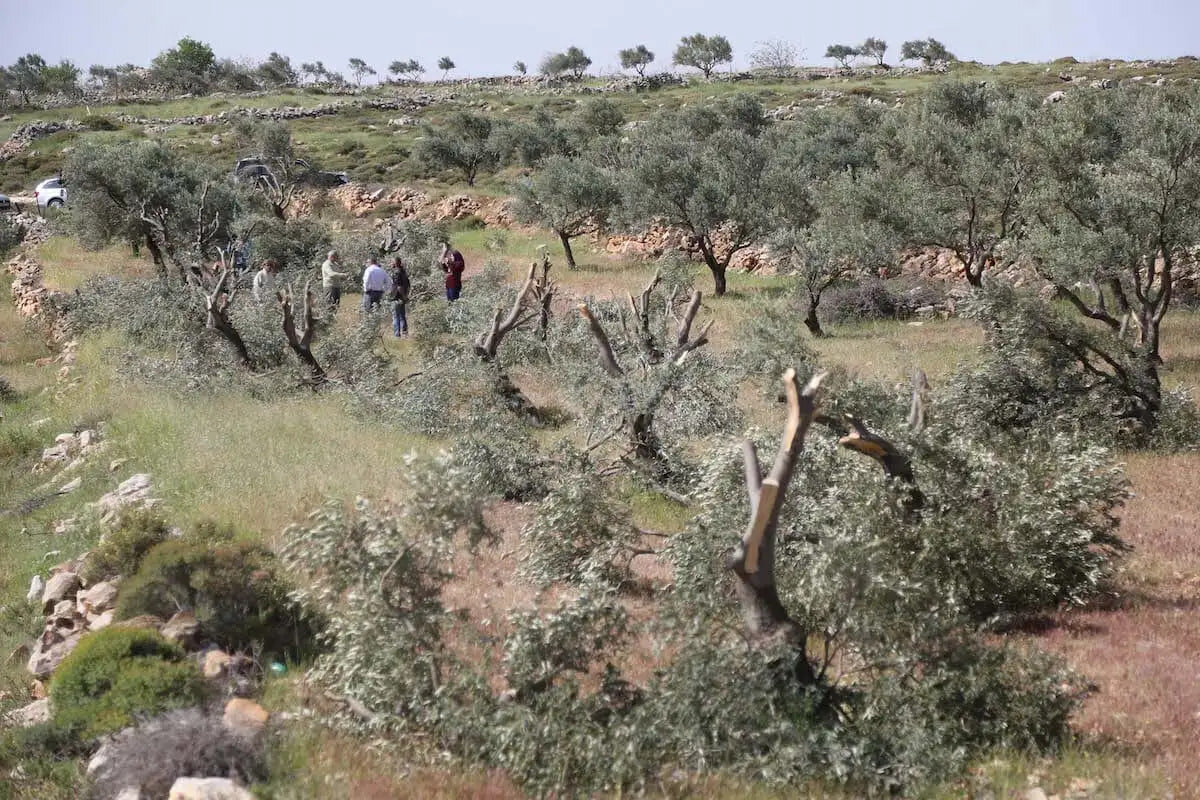Israeli settlers are seizing Palestinian land under cover of war - they hope permanently

In the Palestinian village of Battir, where ancient terraces are irrigated by a natural spring, life carries on as it has for centuries.
Part of a UNESCO World Heritage site, Battir is known for its olive groves and vineyards. But now it is the latest flashpoint over settlements in the occupied West Bank.
Israel has approved a new Jewish settlement here, taking away privately owned land for new settler houses and new outposts have been set up without even Israeli authorisation.
“They are stealing our land to build their dreams on our catastrophe,” says Ghassan Olyan, whose property is among those seized, BBC said in a report on its website.
UNESCO says it is concerned by the settlers’ plans around Battir, but the village is far from an isolated example. All settlements are seen as illegal under international law.
“They are not caring about the international law, or local law, and even God’s law,” Olyan says.
On August 22, Israel’s domestic intelligence chief Ronen Bar wrote to ministers warning that Jewish extremists in the West Bank were carrying out acts of “terror” against Palestinians and causing “indescribable damage” to the country.
Since the start of the war in Gaza, there has been an acceleration in settlement growth in the occupied West Bank.
Extremists in Israel’s government boast that these changes will prevent an independent Palestinian state from ever being created.
Extremists in Israel’s government boast that land grabs will prevent an independent Palestinian state from ever being created.
There are fears, too, that they seek to prolong the war in Gaza to suit their goals.
Yonatan Mizrahi from Peace Now, an Israeli organisation that monitors settlement growth, says Jewish extremists in the West Bank are exacerbating an already tense and volatile situation, and making it harder than ever to end the Israeli-Palestinian conflict.
Mizrahi worries that Jewish extremists in the West Bank are exacerbating an already tense and volatile situation, making it harder than ever to end the Israel-Palestinian conflict. “I think it’s extremely dangerous,” he says. “It’s increasing the hate on both sides.”
Since the outbreak of the war, settler violence against Palestinian civilians in the West Bank has surged.
It had already been on the rise, but in the past 10 months the UN has documented around 1,270 attacks, compared with 856 in all of 2022.
According to the Israeli human rights organisation B’Tselem, during the same period Israeli settler harassment has forced Palestinians out of at least 18 villages in the West Bank, the Palestinian territory between Israel and Jordan that was captured by Israel in the 1967 Middle East war and has been occupied ever since.
Israeli settler harassment has forced Palestinians out of at least 18 villages in the West Bank in 10 months.
Between 7 October and August 2024, 589 Palestinians were killed in the West Bank – at least 570 by Israeli forces and at least 11 by settlers, according to the UN. They include some said to have been planning attacks as well as unarmed civilians. In the same period, Palestinians killed five settlers and nine members of Israel’s security forces.
This week, a Palestinian man aged 40 was reportedly shot dead after settlers and Israeli soldiers entered Wadi al-Rahhel, near Bethlehem. The Israeli military said stones had previously been thrown at an Israeli vehicle nearby.
Last month, a 22-year-old Palestinian man was killed when dozens of settlers rampaged through the village of Jit, prompting international condemnation. Israeli security forces have made four arrests and have described the incident as a “severe terror event”.
But the track record in such cases is one of virtual impunity. Israeli civil rights group Yesh Din found that, between 2005 and 2023, just 3% of official investigations into settler violence ended in a conviction.
In the letter by Ronen Bar, which was leaked to Israeli media, the head of Israel’s Shin Bet security service said that radical settlers were emboldened by light-handed law enforcement.
'Extremely dangerous'
Settlers live in exclusively Jewish communities set up in parts of the West Bank.
Many settlements have the legal support of the Israeli government; others, known as outposts, and often as simple as caravans and corrugated iron sheds, are illegal even under Israeli law. But extremists build them regardless in a bid to seize more land.
In July, when the UN’s top court found for the first time that Israel’s occupation of the West Bank, including East Jerusalem, was illegal, it said the country should halt all settlement activity and withdraw as soon as possible.
Israel’s Western allies have repeatedly described settlements as an obstacle to peace. Israel rejected the finding, claiming: “The Jewish people are not occupiers in their own land.”
Leave a Comment